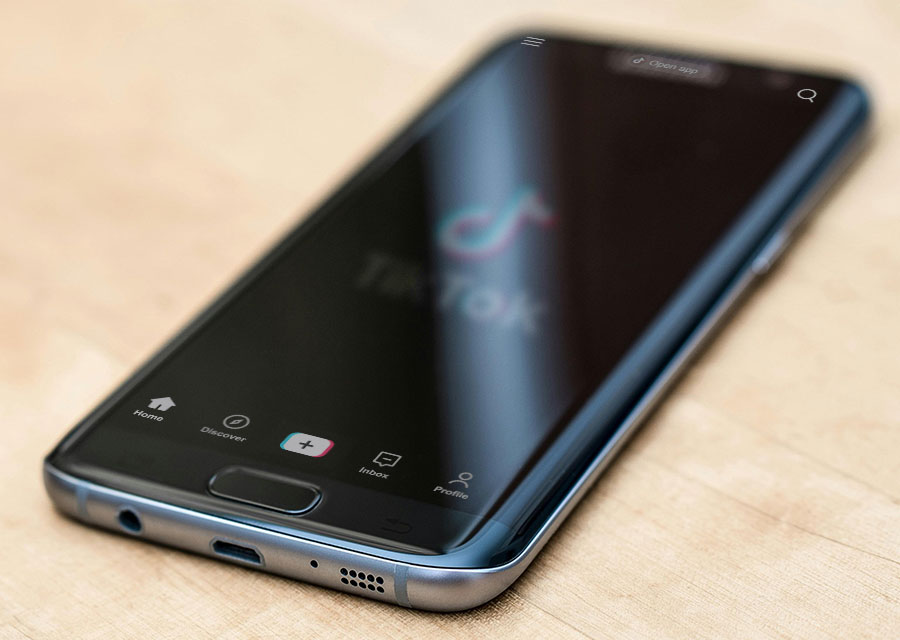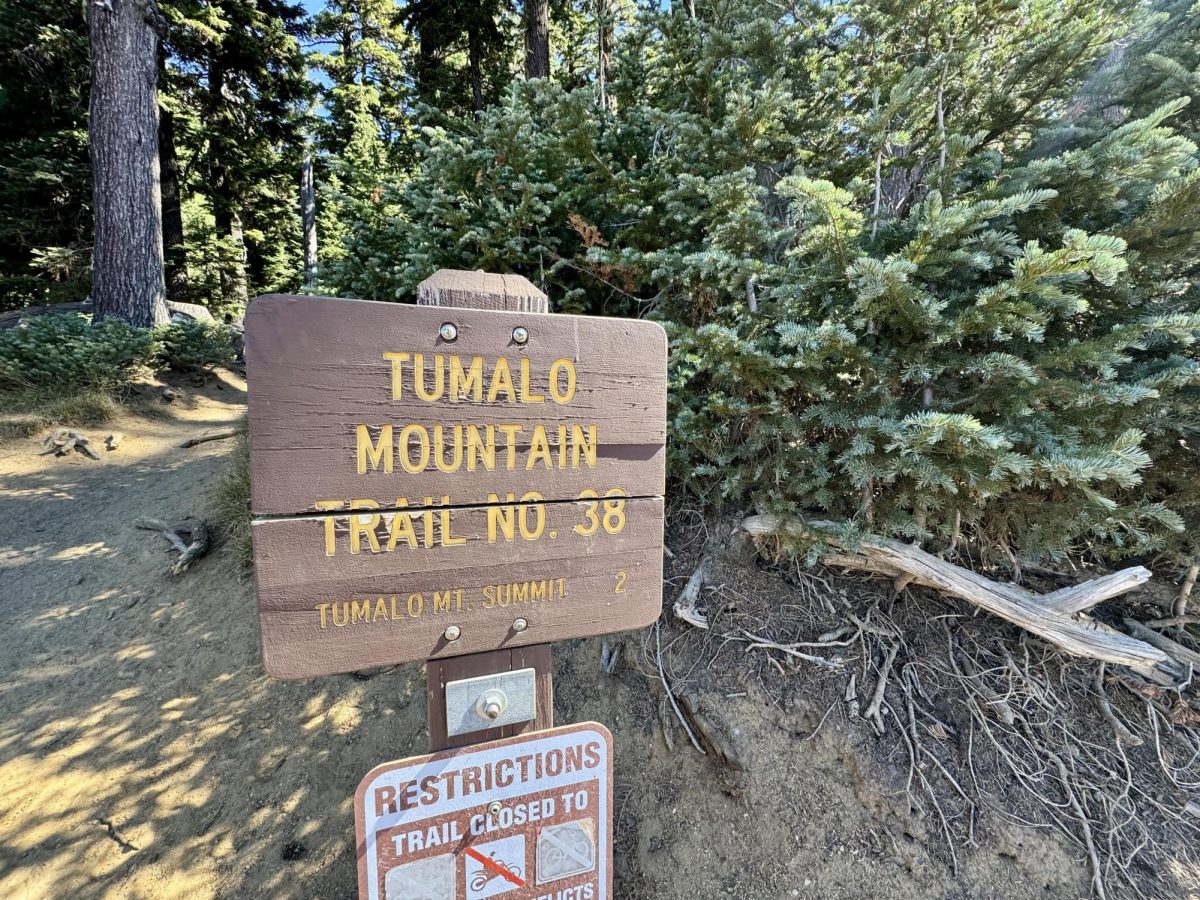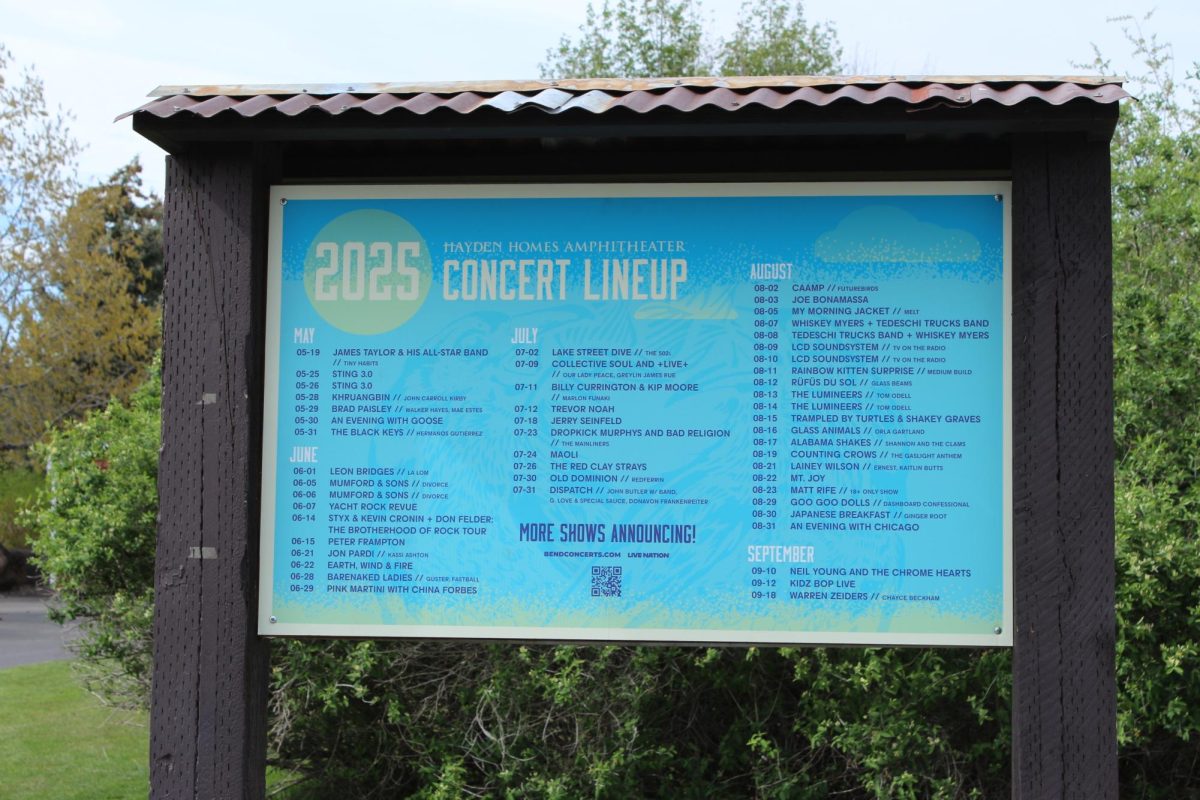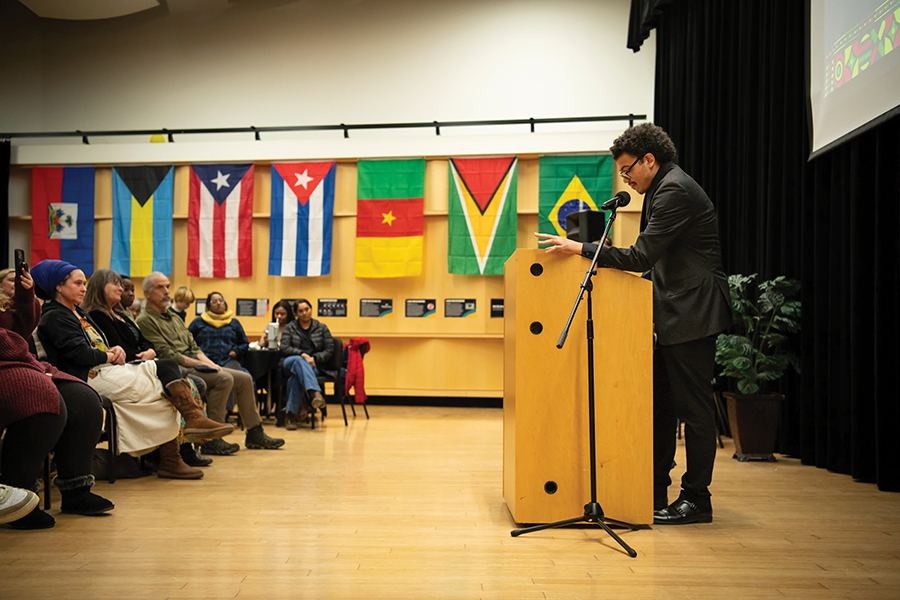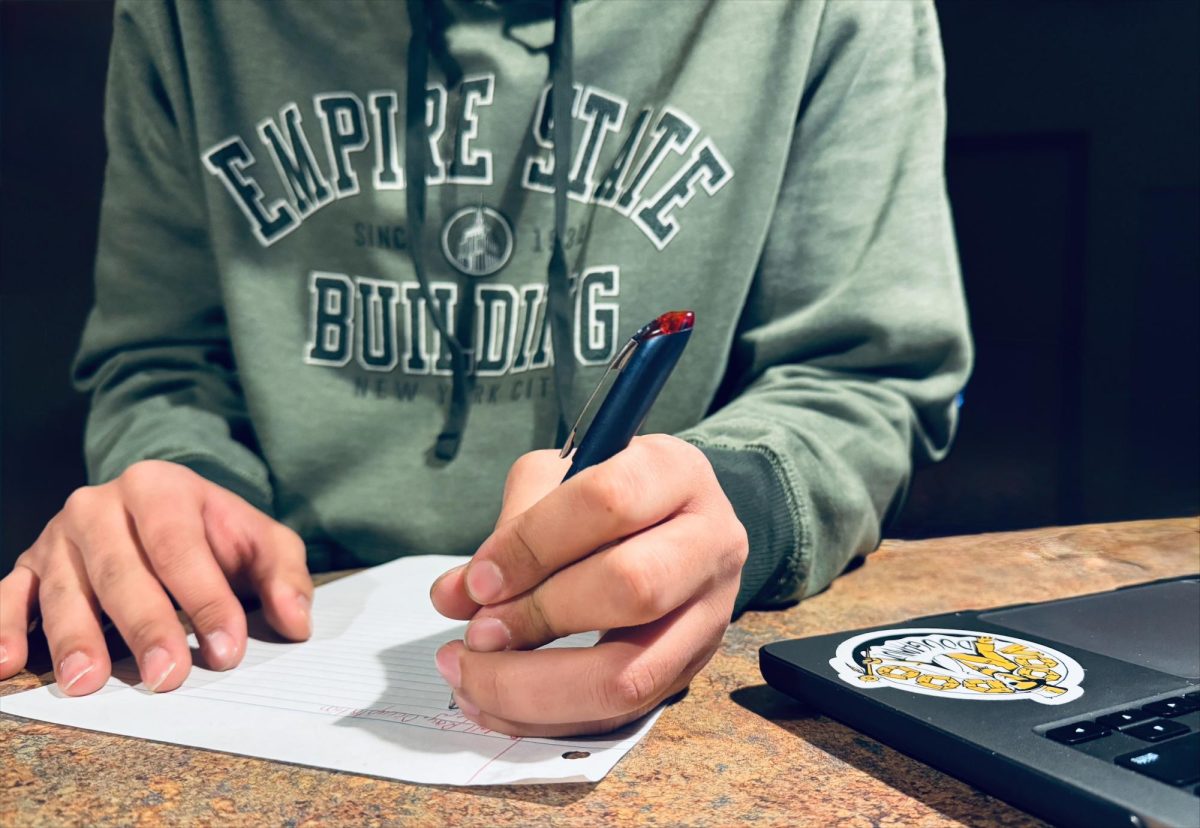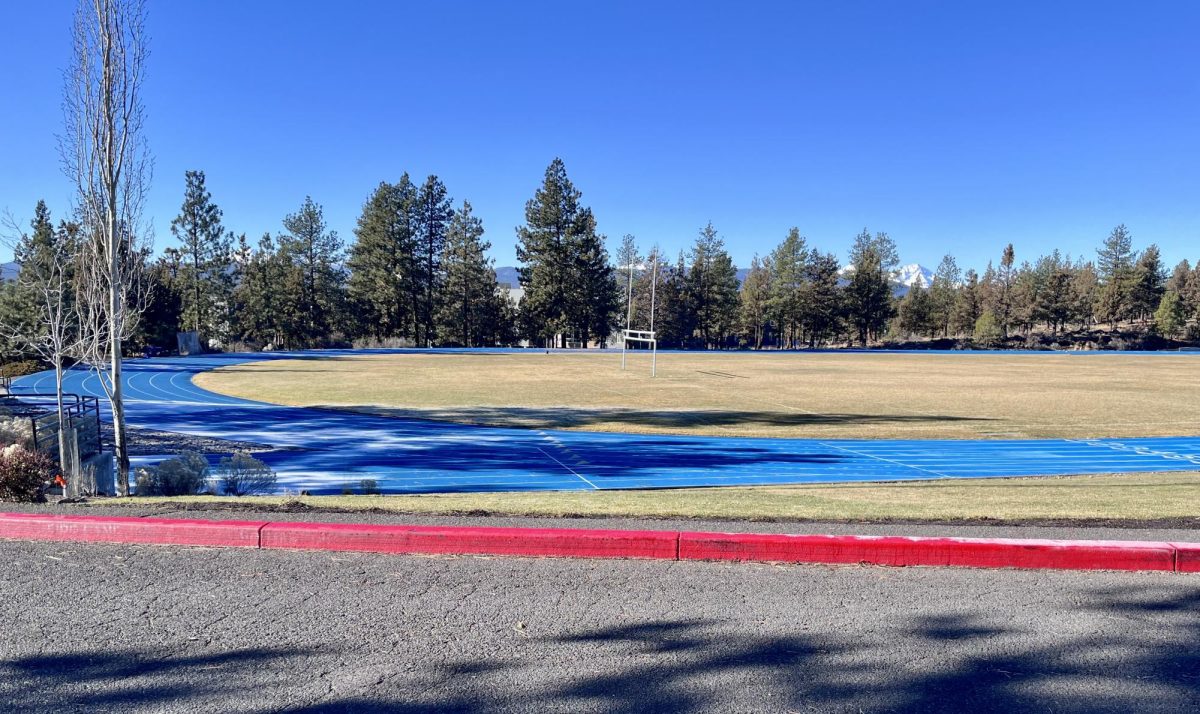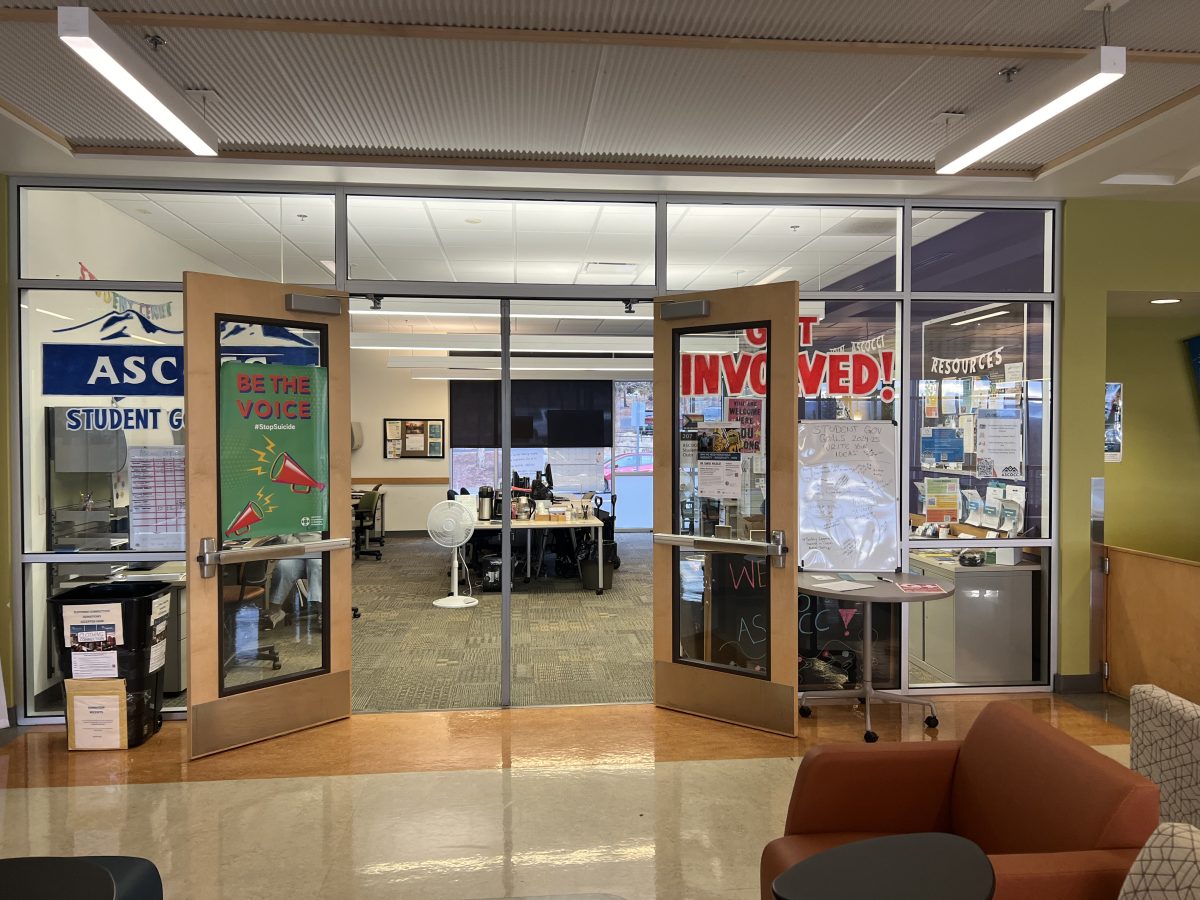What would the impact of the TikTok ban have on Central Oregon Community College students, and what do they think about the ban? Students at the Bend campus expressed their opinions and their feelings about and how they use the TikTok along with the issues surrounding it.
With TikTok’s future in the United States hanging in the balance by a ruling upheld by the Supreme Court of the United States’s decision on the TikTok ban on Fri, Jan. 17. The parent company, ByteDance Ltd (Limited), a company operating in Beijing, China had until Sunday Jan. 19 to sell or disinvest in TikTok U.S. operations if it wanted to continue operating in the United States.
In a fortunate turn of events in less than 24 hours after the services were taken offline at approx. 9 – 10:30 pm, on Jan. 18. TikTok services were back the following day. Even though the services were back online, mobile app stores, like Google Play or Apple’s App Store had withdrawn the app from their stores making TikTok unavailable to new customers.
“I use it for all sorts of things. I’ve found that a lot of the questions that I have can be answered on TikTok like real people, which is kind of cool, I kind of use it for everything. Sometimes I get news on there”, but I don’t like that I don’t have anything catered towards that on my feed page or anything.” said COCC student Nicole Sharp.
Sharp also had this to say about the issues surrounding the ban “I think that if TikTok got banned by the Supreme Court, they would be kind of stupid because I think TikTok is used for a lot of useful things. I’m sure that they want to ban it because you know a lot of movements happen there, and I feel like a lot of people really find a strong community and get new, like ideas and beliefs there.”
“I do use TikTok. Use a lot actually. I don’t know about the TikTok ban. I usually like to get…like obviously for entertainment, but I also get a lot of information like news stuff from there, there’s a lot of like news accounts I follow. Just like to stay updated on that kind of stuff.” If the ban does go through, Stanley stated “I know a lot of people are turning to Instagram Reels and stuff, so I might do that.” said student, Kailee Stanley
Raymond Salinas, a student who is working on their associates degree in cybersecurity, said, “I use TikTok to watch videos, because I get like different points of views from people all over the U.S., maybe even all over the world, about different ideas, different politics, and stuff, and I think the ban, if it goes through, I think that it’s going to set a lot of people back in regards to reaching out to different types of people, different types of ideologies and stuff.”
Reeve Damschen also echoed this in his reasons for using TikTok “I use TikTok a lot. I like it a lot. I don’t know how I feel about the ban, but I know I use TikTok a lot and I’d appreciate it if it didn’t get banned.” Damschen also expressed what alternative he would use if TikTok was banned “I think I just go to Instagram. Instagram has a Reels feature, which is pretty much what TikTok is.”
ASCOCC President Thomas Wrisley shared his own personal opinion, “TikTok is a really interesting tool to get a multitude of perspectives, particularly on the ground perspectives. However, since I am not a lawmaker and I’m not really privy to a lot of information regarding the national security implications of TikTok, then I can’t really. Make a qualified opinion on…I wish that TikTok had stayed in place and continued to provide a means of expression and discourse, so I’m disappointed.”
Wrisley also stated that “the security implications of the TikTok ban, particularly as it comes to the proliferation of misinformation online. As useful as it is to give a multitude of perspectives. There’s a lot of obfuscation and outright lies that I see on TikTok pretty regularly. So it’s sort of a double-edged sword, but I would be on the side of free speech and free expression.”
While TikTok is great for entertainment and finding out new hobbies and endeavors for some college students, others use the app to promote causes or posting their own content to share with others.
“It wouldn’t affect me too much because I don’t like rely on or it’s just like a kind of like a hobby, and I can, like, do the same thing on Instagram so it wouldn’t affect me in a way that it would affect people who use this as their job, you know.” said, Violet Young, a COCC student
Another student, Jake Boone had this to say about the mobile app, “Well, I don’t know a whole lot about the ban or their reasoning behind it, so I don’t have too much to say on that, although I don’t think that they should be able to decide what we can or cannot use in our personal lives. Mostly I just use TikTok to kill time. The videos or sometimes I post stuff. For my friends and stuff like that. That’s about it.”,
“Yeah, I don’t know, I used to use TikTok, to promote some activities that I was doing and kind of spread awareness and stuff like that. Get it out to people and so I guess if the ban did go through, I’d probably just look for another platform to use in that way.”
A Pew Research study, published Oct. 2024 found that about 95% of U.S. adult TikTok users use it for entertainment, 41% use it to get news and 36% use it to keep up with politics.
While some students used TikTok for entertainment, news, communicating and sharing with friends and family, some COCC students had opposing viewpoints.
London Larson, a COCC student who we talked to on Coats Campus shared his thoughts about TikTok, “I am not a personal user of social media…as an outsider looking in, it feels kind of predatory. I think TikTok is a bad thing, but it shouldn’t be banned like that’s just (an) inhibition of freedom of speech. Access to that sort of media is something people are going to have like either way.”
“The thing is our system (of) law is not built for the Internet age. Our change is glacial in comparison to the way that these platforms can change immediately. A ban would be a bad thing, I think it inhibits teenagers’ ways of connecting to each other because whilst it is unfortunate, that’s how we connect these days.”
“I know just about all of my friends use TikTok and as such there is an economy around it and banning that is. Somewhat unfair. Because they’re not doing anything wrong like TikTok creators aren’t breaking the law in any way. And again, this brings it all back to its limiting freedom of speech. Because if they’re not breaking the law, why punish them?” said, Larson
According to the United States’ Committee of Energy & Commerce, the TikTok ban, does not necessarily prohibit TikTok from being used in the U.S. Stated in committee’s Fact Check the ban does not prohibit freedom of speech, its focus is solely on the foreign adversaries that are defined in the ban.
Pete Foley, another COCC student who we talked to at Coats Campus, shared his thoughts “I think it’s honestly a good thing because it, It’s being used and just the sell, like sell or ban not just banning. And yeah, it’s. I think it’s probably a good thing just because it is like a bad idea to have any foreign nation who is in opposition with us. A large significant control over a very widely used social media app.
And it’s just, it’s just not a good idea. Of course, selling would mean. I think it has to sell to an American shore, which almost guarantees no foreign hands in what’s being displayed content wise, and honestly, I prefer Reels, so it doesn’t really affect me at all.”
Even though the company ByteDance Ltd, and its application TikTok are mentioned specifically in the ban, even though the bill, H.R.7521 – Protecting Americans from Foreign Adversary Controlled Applications Act, is general enough to be applied to other foreign adversaries as well. Multiple news outlets have reported on the arguments on both sides of the aisle based on freedom of speech, versus privacy, data collection and national security.
The TikTok Application ban as it is commonly known is an act, passed by the congressional house along with senate support through a foreign aid bill, H.R.815 which included added conditions to the TikTok ban, with bipartisan support. H.R.7521 – Protecting Americans from Foreign Adversary Controlled Applications Act, introduced in March 2024, would limit data collection and potential influence by applications in such categories: web, desktop and mobile, that are operated, owned, and maintained by foreign adversary companies, that the United States demes a security and privacy risk.


